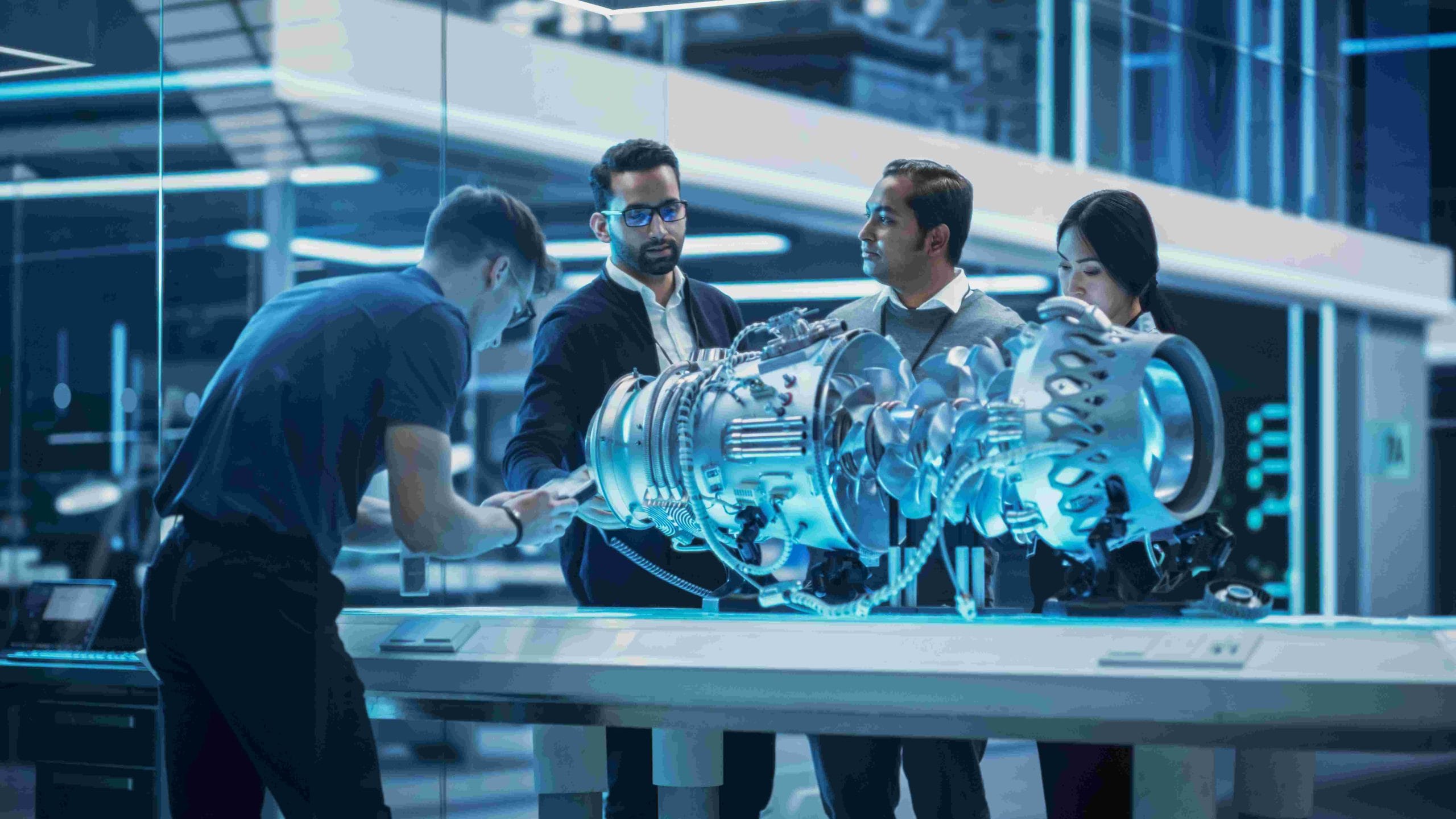
An Intensive 5-day Training Course
Turbine:
Fundamental, Design and Maintenance
Scheduled Dates
Classroom
| 27-31 Jul 2026 | Dubai - UAE | $5,950 | RESERVE A SEAT |
| 12-16 Oct 2026 | Dubai - UAE | $5,950 | RESERVE A SEAT |
Would an alternative date be more suitable?
We offer a variety of tailored training options, customized to meet your organisation's needs. Delivered anytime, anywhere, we make it easy to bring expert training directly to your team.
Why Choose this Training Course?
Francis Turbine combines impulse and reaction forces in order to produce electricity efficiently, having as an input flow of water going through its blades. This type of turbine is typically installed in hydro power stations. The most common application in a hydroelectric power plant is an impoundment facility. An impoundment facility is a large system that requires a structure to hold and store water (a dam). Water from this storage area is used as input through the turbine and the rotation created drives a generator that produces electricity.
In this Turbine: Fundamental, Design and Maintenance training course the components of a hydro-turbine/ generator system components are explained, and focus is given in inspection, condition monitoring and failure analysis.
This PetroKnowledge training course will highlight:
- Basic Components and electro-mechanical conversion systems
- Turbine Maintenance Best Practices
- Turbine Troubleshooting
- Turbine Diagnostics and Failure Analysis
- Generator Fundamentals & Maintenance
What are the Goals?
By the end of this Turbine: Fundamental, Design and Maintenance training course, participants will learn to:
- Implement optimum maintenance strategies.
- Execute systematic techniques for equipment inspection and testing.
- Learn how to apply condition monitoring techniques.
- Determine latest developments in equipment performance monitoring.
- Discuss various equipment analysis techniques.
Who is this Training Course for?
This Turbine: Fundamental, Design and Maintenance training course is suitable to a wide range of professionals but will greatly benefit:
- Maintenance Engineers
- Rotating Equipment Engineers
- Service Engineers
- Reliability Engineers
- Field Operators
- Mechanics
- Maintenance Supervisors
- Maintenance Managers
How will this Training Course be Presented?
Participants in Turbine: Fundamental, Design and Maintenance this training course will receive thorough training on the subjects covered by the course outline with the Tutor utilizing a variety of proven adult learning teaching and facilitation techniques. Seminar methodology includes lectures, workshops and work presentations, case studies and practical exercises and videos. Practical sessions will be organized during the course for delegates to practice the topics learnt. Participants will be encouraged to participate in group discussions and share their experience.
Organisational Impact
Employees participating in this Turbine: Fundamental, Design and Maintenance training course will bring added value to their organization by acquiring skills related to:
- Higher performance of functions related to Inspection, Testing and Diagnostic Measurements oof Equipment.
- Increased wrench time related to maintenance of equipment.
- Bench-marking best maintenance practices applied by world class organizations.
- A more methodical and efficient operation
- Improved equipment reliability and mechanical integrity
- Time and money savings by less maintenance and extended runs
Personal Impact
Employees participating in this Turbine: Fundamental, Design and Maintenance course will enhance their career by:
- Gaining confidence on learning the best practices related to diagnostic skills.
- Learning how to participate in teams involved in condition monitoring.
- Understanding the important points to be included in reports related to failure analysis of equipment.
- Identifying important factors to communicate efficiently with others in relation to equipment performance analysis.
- Planning and scheduling more efficiently activities related to equipment inspection and maintenance.
Daily Agenda
Day One: Basic Components and Electro-Mechanical conversion systems
- Classification of Hydro-Turbines
- Modelling and dynamic behavior of hydro power plants
- Key Features of Hydro-power Plants
- Assessment of_Francis_Runners_in relation to Sedimen
- Stable Operation Regarding Rotor Angle Stability
- Stable Operation Regarding Frequency Stability
Day Two: Turbine Maintenance Best Practices
- Reliability Analysis of Francis Turbine Blade Against Fatigue Failure
- Integrated maintenance features of hydro turbine governors
- Operation and Maintenance Problems in Hydro Turbine Material in Hydro Power Plant
- Application of complexity theory to hydro-turbine maintenance
- Maintenance Planning & Scheduling
- Case Study: Optimal Maintenance Information System of Gezhouba Hydro Power Plant
- Case Study: Age estimation of electrographite brush in generator system for optimized maintenance planning of Sirikit hydro power plant
Day Three: Turbine Troubleshooting
- How blade perforation is related to hydro-turbine cavitation
- Cavitation in Turbines and Methods of Improving Cavitation Performance
- Effect of transients on Francis turbine runner life
- Discussion of dynamic pressure variations in a turbine during start-up and shutdown
- Case study on nondestructive inspection of Francis turbine components
Day Four: Turbine Diagnostics and Failure Analysis
- Turbine Bearing Lubrication and Inspection
- Predictions of pressure pulses in a Francis pump turbine based on misalignment.
- High Head During Spin-No-Load Operation
- Failure analysis of a Francis turbine runner
- Draft Tube Surge and Erosion
- Case Study: Health assessment of a reversible turbine
Day Five: Generator Fundamentals & Maintenance
- Mechanical and Electrical Tests
- Heat-Run Testing
- Maintenance Intervals and Planned Outages
- Uprating/Upgrading and Life Extension
- Excitation System Up
Certificate
- On successful completion of this Training Course / Online Training Course, a PetroKnowledge Certificate / E-Certificate will be awarded to the delegates.
